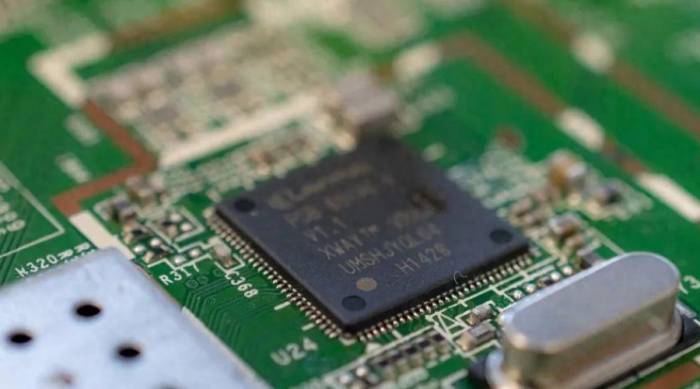TSMC, Intel and other company project constructions are delayed.
The Financial Times recently reported that despite the United States passing the Inflation Reduction Act and the CHIPS and Science Act, which provide more than 400 billion US dollars in tax incentives, loans, and subsidies to promote the development of domestic clean energy technology and the semiconductor industry, the recovery process of American manufacturing has been delayed due to investors pausing their plans.
It is known that the act involves 114 major projects with a total investment of 227.9 billion US dollars. However, projects with a total investment of about 84 billion US dollars are facing delays ranging from two months to several years, and some are even indefinitely postponed. These delayed projects include several semiconductor projects.
The companies involved have stated that the reasons for changing investment plans are the deterioration of market conditions, a slowdown in demand, and uncertainty in domestic policy.
TSMC postpones production at the Arizona factory
On August 13, TSMC announced several board resolutions, including the approval of a capital budget of nearly 29.6 billion US dollars, of which TSMC approved an investment of up to 7.5 billion US dollars for its wholly-owned subsidiary, TSMC Arizona.
TSMC originally planned to build three wafer factories in Arizona over the next few years with a total investment of 65 billion US dollars. However, according to a recent report in The New York Times, despite announcing this plan four years ago, the Arizona factory has not yet produced a single chip.TSMC, known for its intense work culture in Taiwan, has encountered cultural clashes in the United States, with many American employees expressing dissatisfaction and even choosing to resign due to this work style.
Advertisement
To address this issue, TSMC has begun taking measures, including management communication skills training courses and reducing the frequency and number of meetings, in hopes of creating a more relaxed work atmosphere.
It is reported that cultural differences and competition for labor resources with Intel are one of the factors leading to challenges and production delays at TSMC's Arizona factory.
In May 2020, TSMC announced plans to build a semiconductor wafer factory in Arizona, initially scheduled to start construction in 2021 and expected to begin production in 2024. The second wafer factory was announced in December 2020, with a target of starting production in 2026.
In May of this year, TSMC's official website showed that the production start time for the first wafer factory in Arizona has been postponed to the first half of 2025, and the production start time for the second wafer factory has also been postponed to 2028.
As for the third wafer factory, TSMC has not yet disclosed the start date, but the official plan is to start production in the late 2030s.
According to TSMC's plan, the first wafer factory in Arizona will use 4nm process technology, the second wafer factory will use 2nm technology, and the third wafer factory will use 2nm or more advanced process technology.
Intel Delays Ohio Project Construction
U.S. semiconductor manufacturer Intel plans to invest $100 billion over the next five years to build new wafer factories and expand existing factories in Arizona, New Mexico, Ohio, and Oregon, creating 10,000 manufacturing jobs and 20,000 construction jobs.
However, it is reported that due to market downturns and delays in U.S. subsidies, Intel has postponed its $20 billion chip project in Ohio.Intel plans to build two advanced wafer fabs in Ohio, with preliminary plans to start chip production in 2025. After adjustments, the completion of Intel's Fab1 and Fab2 projects in Ohio has been postponed to 2026-2027, and operations are expected to start around 2027-2028.
As chip manufacturing processes evolve towards 3nm and 2nm, the demand for wafer fab investment has surged, putting financial pressure on semiconductor companies. Against this backdrop, Intel has not only delayed the construction of its Ohio factory but also adjusted its European projects.
Intel plans to invest 30 billion euros in the construction of two wafer fabs, Fab 29.1 and Fab 29.2, in Magdeburg, Germany, which were initially scheduled to start in the second half of 2023.
However, due to the delayed confirmation of EU subsidies and the need to remove the topsoil at the construction site, Intel has postponed the start date to May 2025. In addition, Intel has also suspended its investment plans for factories in France and Italy.

Samsung Delays Taylor Factory Project
Initially, Samsung planned to build a semiconductor cluster in Taylor, Texas, including two advanced logic wafer fabs and an advanced packaging facility, and received up to $6.4 billion in subsidies from the United States.
The new factory, which is about to be built, will be Samsung's second chip factory in the United States, with the first located in Austin, Texas, which has been in operation since 1996. The first wafer fab began construction in 2022, initially scheduled to start production in 2024 with 4nm process capabilities. However, local American media pointed out that the factory may not start operations until 2026, and this delay is likely due to the slowdown in the foundry market and the delayed issuance of U.S. subsidies.
At the same time, according to reports from Tom's Hardware and South Korean media ETnews, with the delay in the construction of semiconductor factories, Samsung may upgrade the advanced process technology of the factory from 4nm to 2nm.
This adjustment aims to enhance Samsung's competitive advantage in advanced processes, enabling it to compete more effectively with rivals such as TSMC, Intel, and Rapidus.
*Statement: This article is the original creation of the author. The content of the article is the author's personal opinion, and our reposting is only for sharing and discussion, does not represent our approval or agreement, if there are any objections, please contact the backstage.
Comments